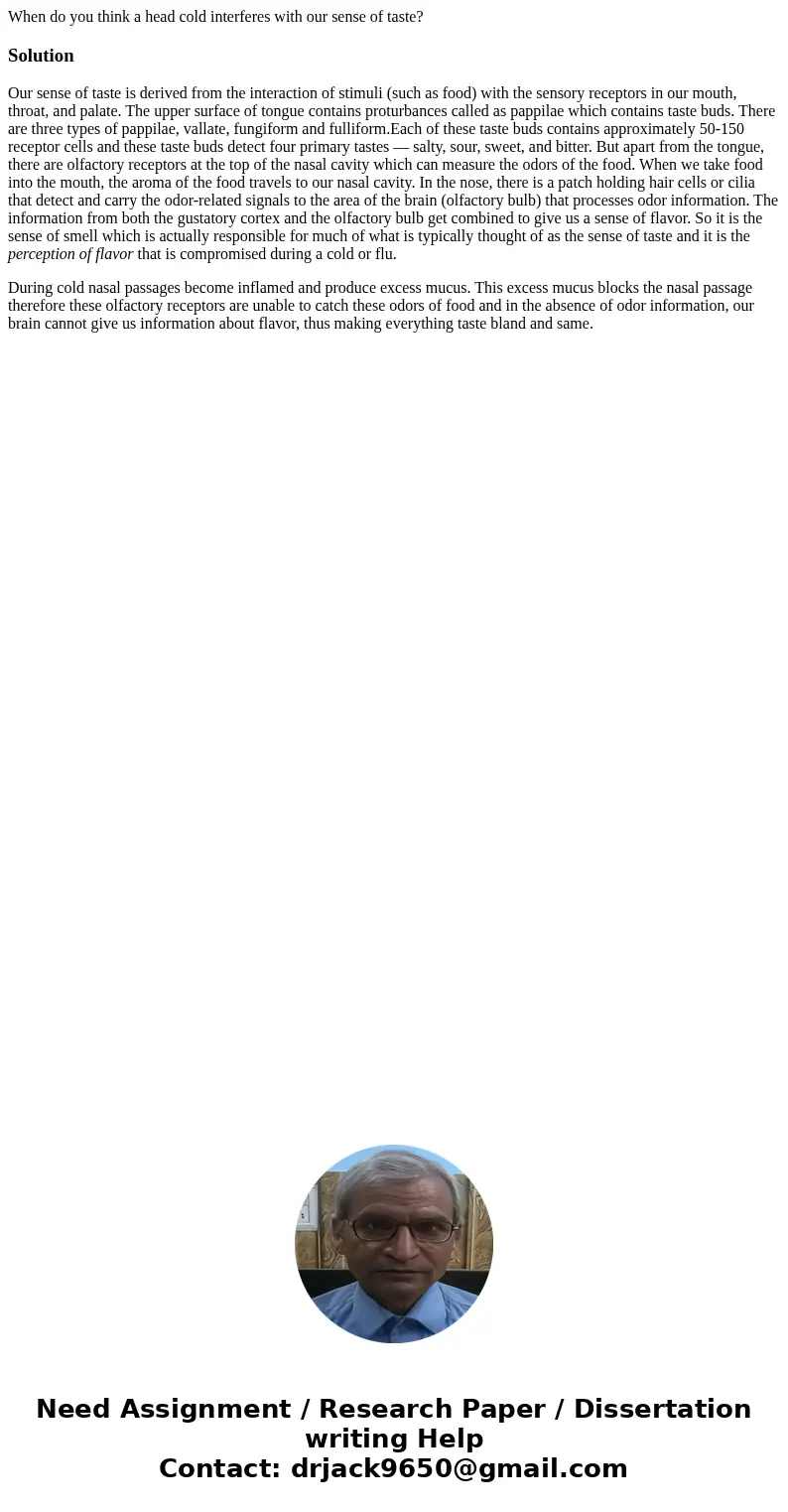When do you think a head cold interferes with our sense of t
When do you think a head cold interferes with our sense of taste?
Solution
Our sense of taste is derived from the interaction of stimuli (such as food) with the sensory receptors in our mouth, throat, and palate. The upper surface of tongue contains proturbances called as pappilae which contains taste buds. There are three types of pappilae, vallate, fungiform and fulliform.Each of these taste buds contains approximately 50-150 receptor cells and these taste buds detect four primary tastes — salty, sour, sweet, and bitter. But apart from the tongue, there are olfactory receptors at the top of the nasal cavity which can measure the odors of the food. When we take food into the mouth, the aroma of the food travels to our nasal cavity. In the nose, there is a patch holding hair cells or cilia that detect and carry the odor-related signals to the area of the brain (olfactory bulb) that processes odor information. The information from both the gustatory cortex and the olfactory bulb get combined to give us a sense of flavor. So it is the sense of smell which is actually responsible for much of what is typically thought of as the sense of taste and it is the perception of flavor that is compromised during a cold or flu.
During cold nasal passages become inflamed and produce excess mucus. This excess mucus blocks the nasal passage therefore these olfactory receptors are unable to catch these odors of food and in the absence of odor information, our brain cannot give us information about flavor, thus making everything taste bland and same.

 Homework Sourse
Homework Sourse